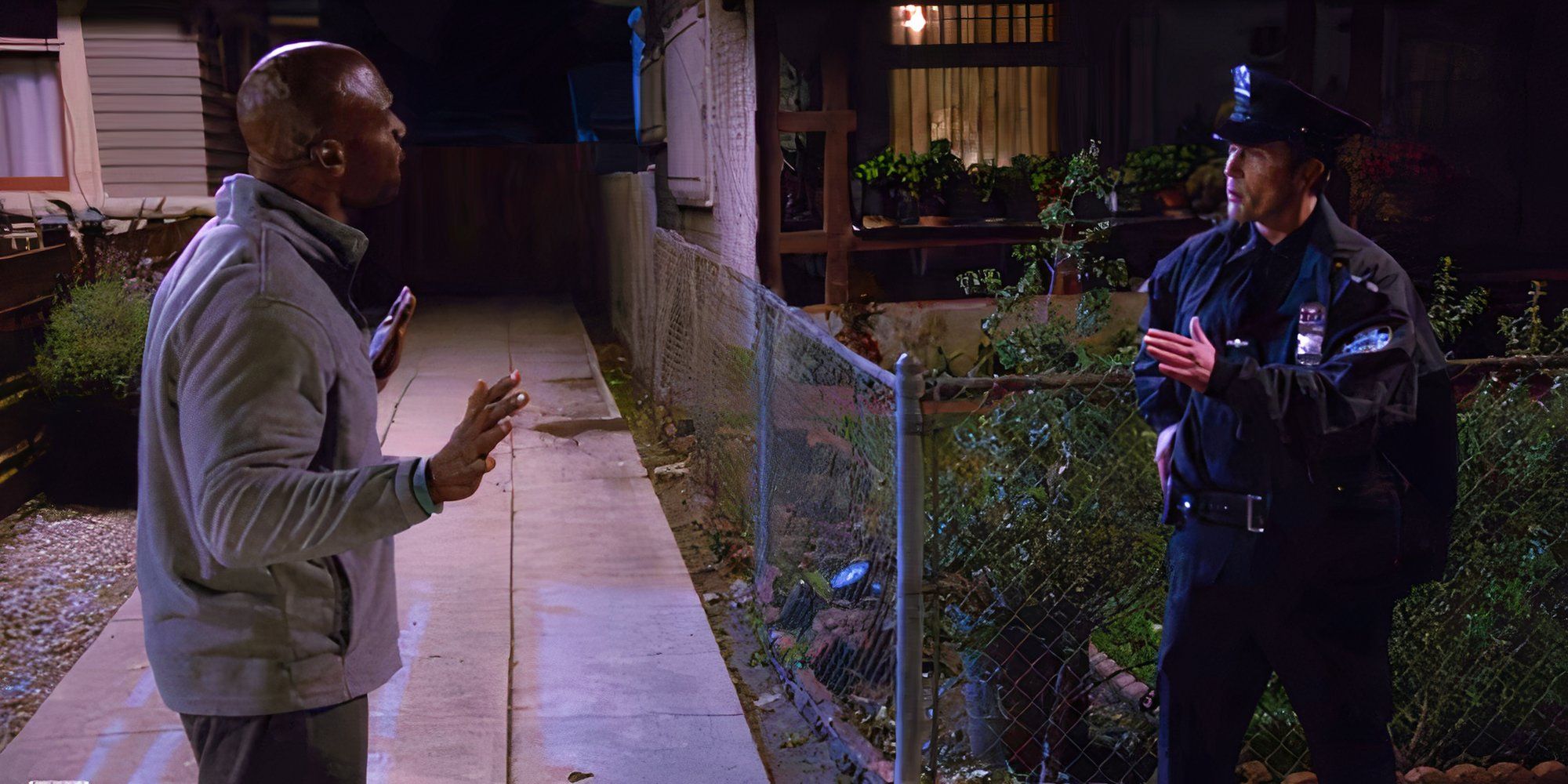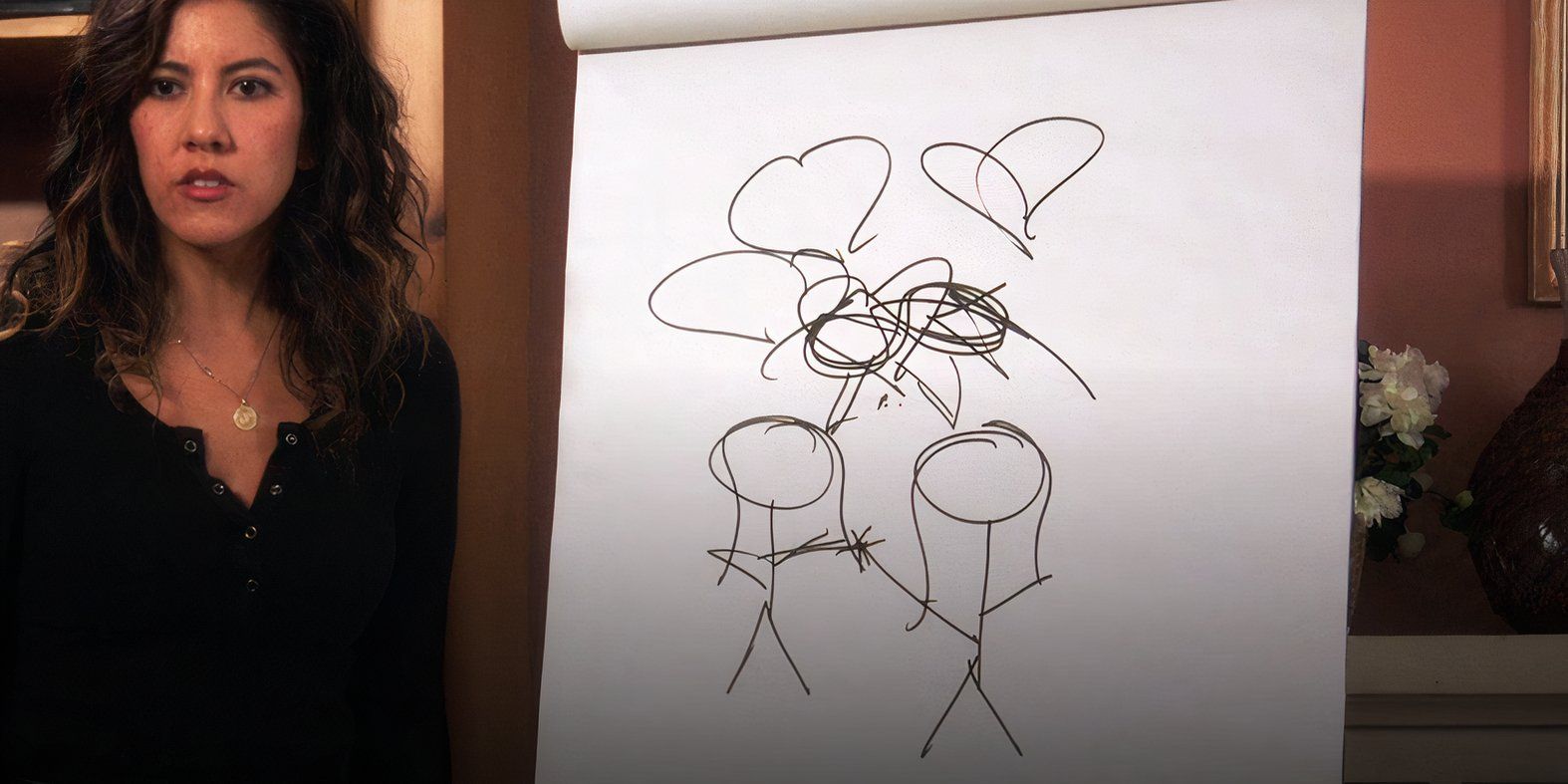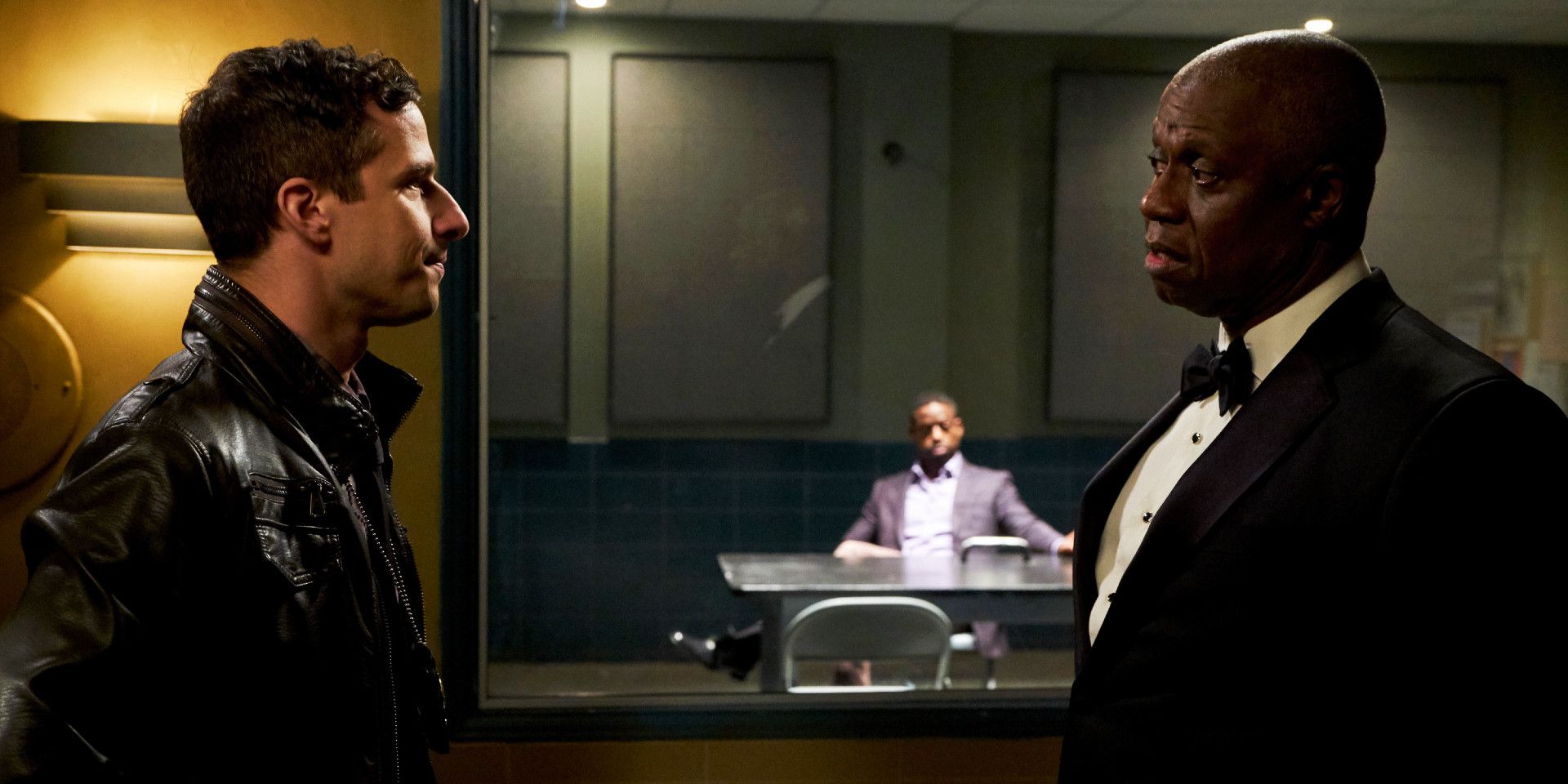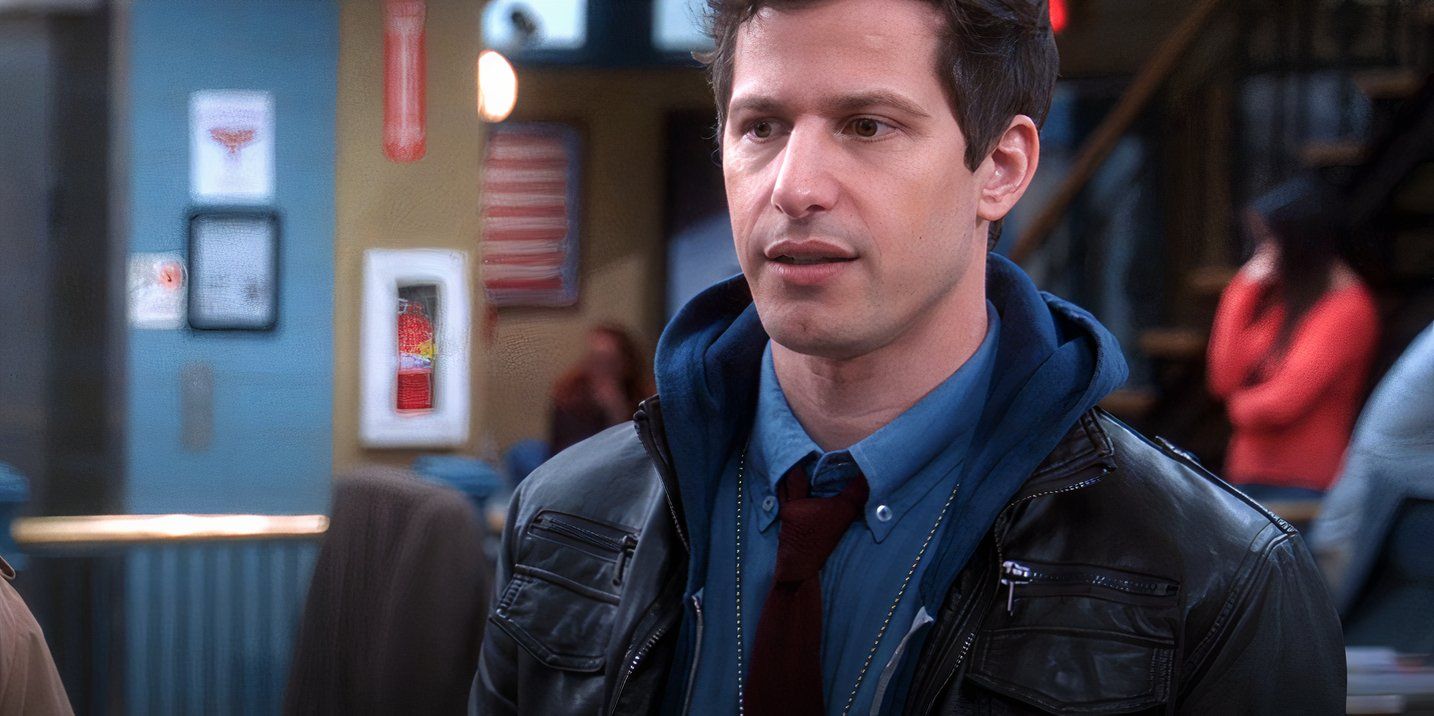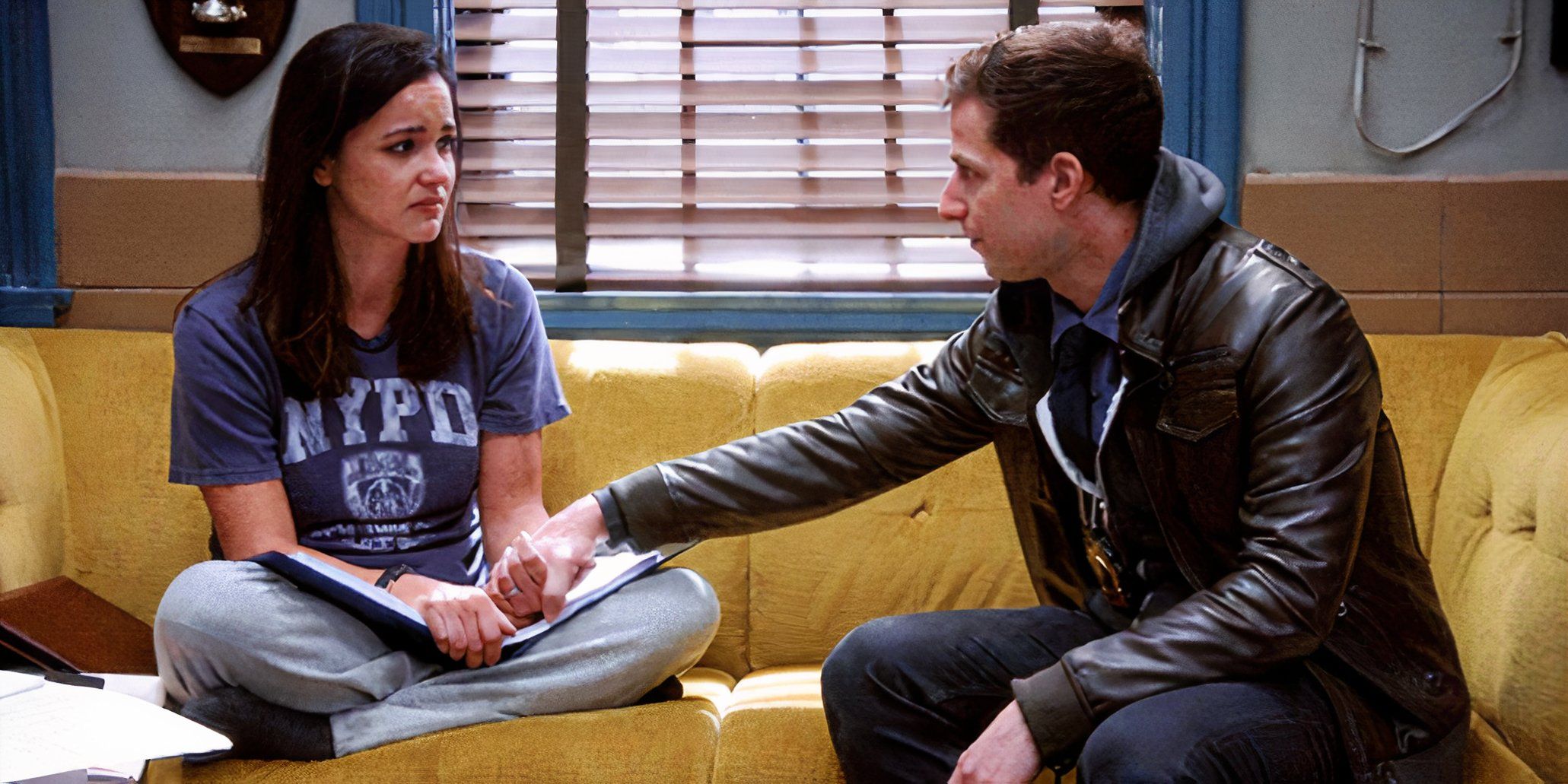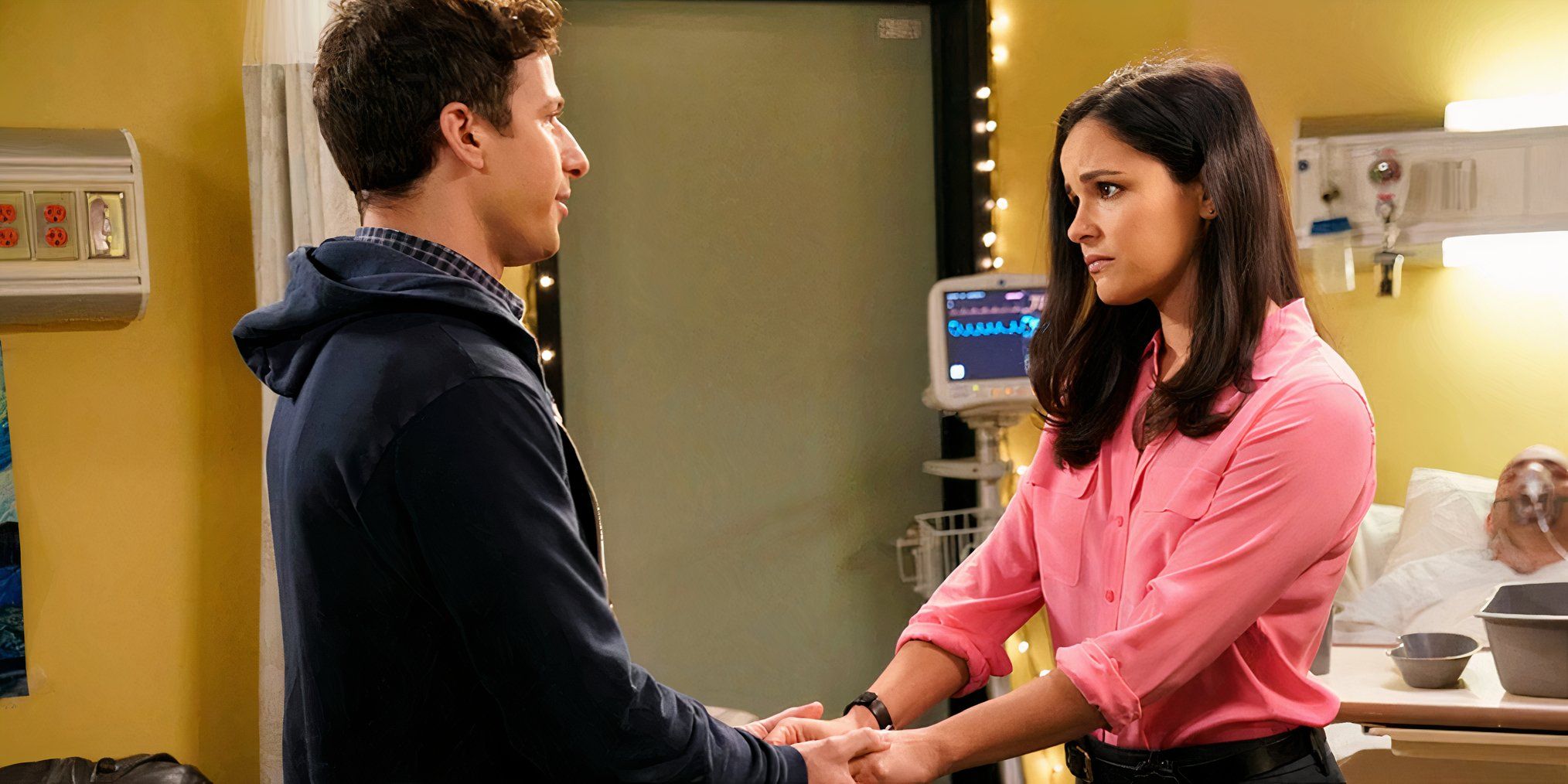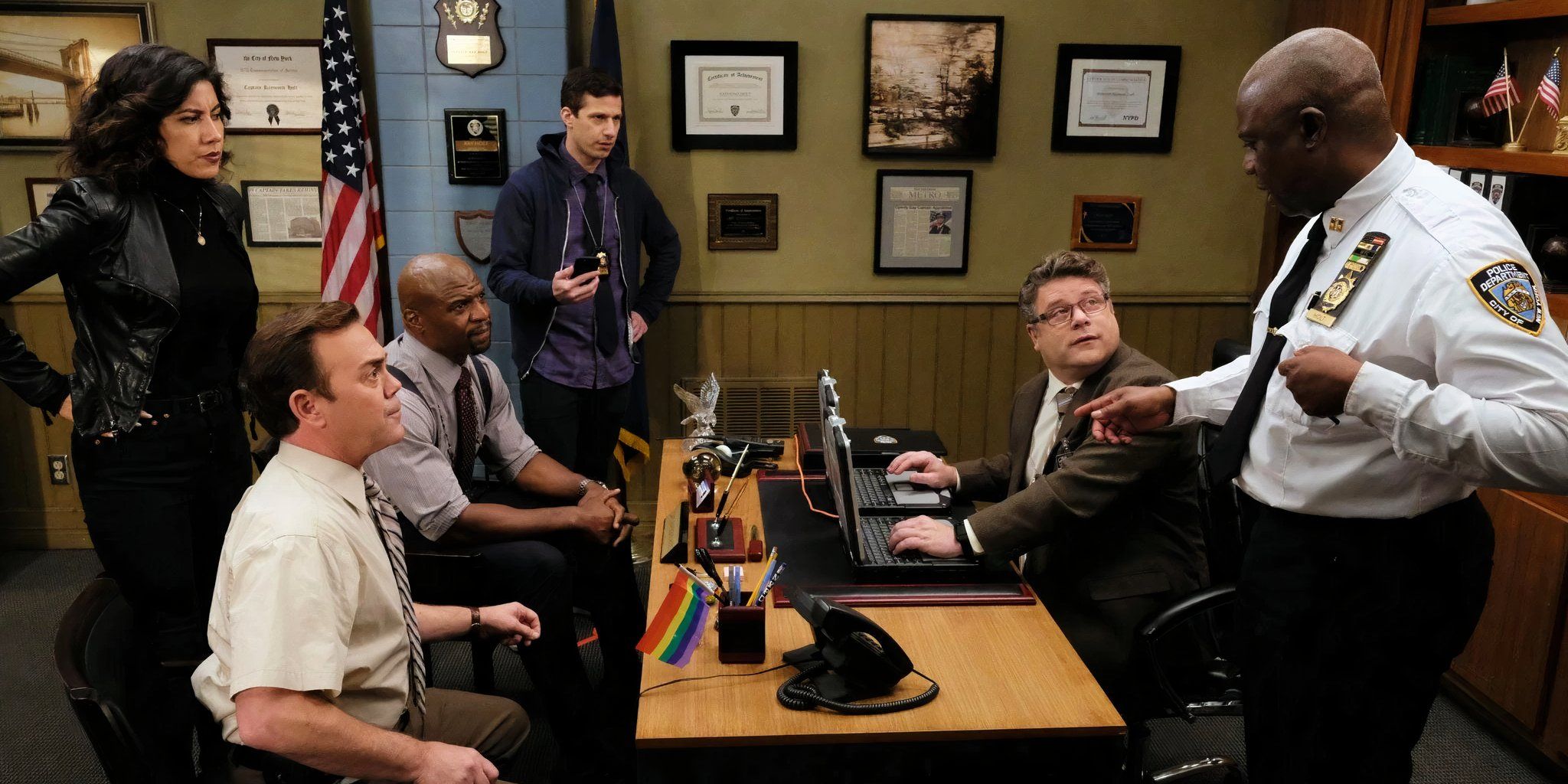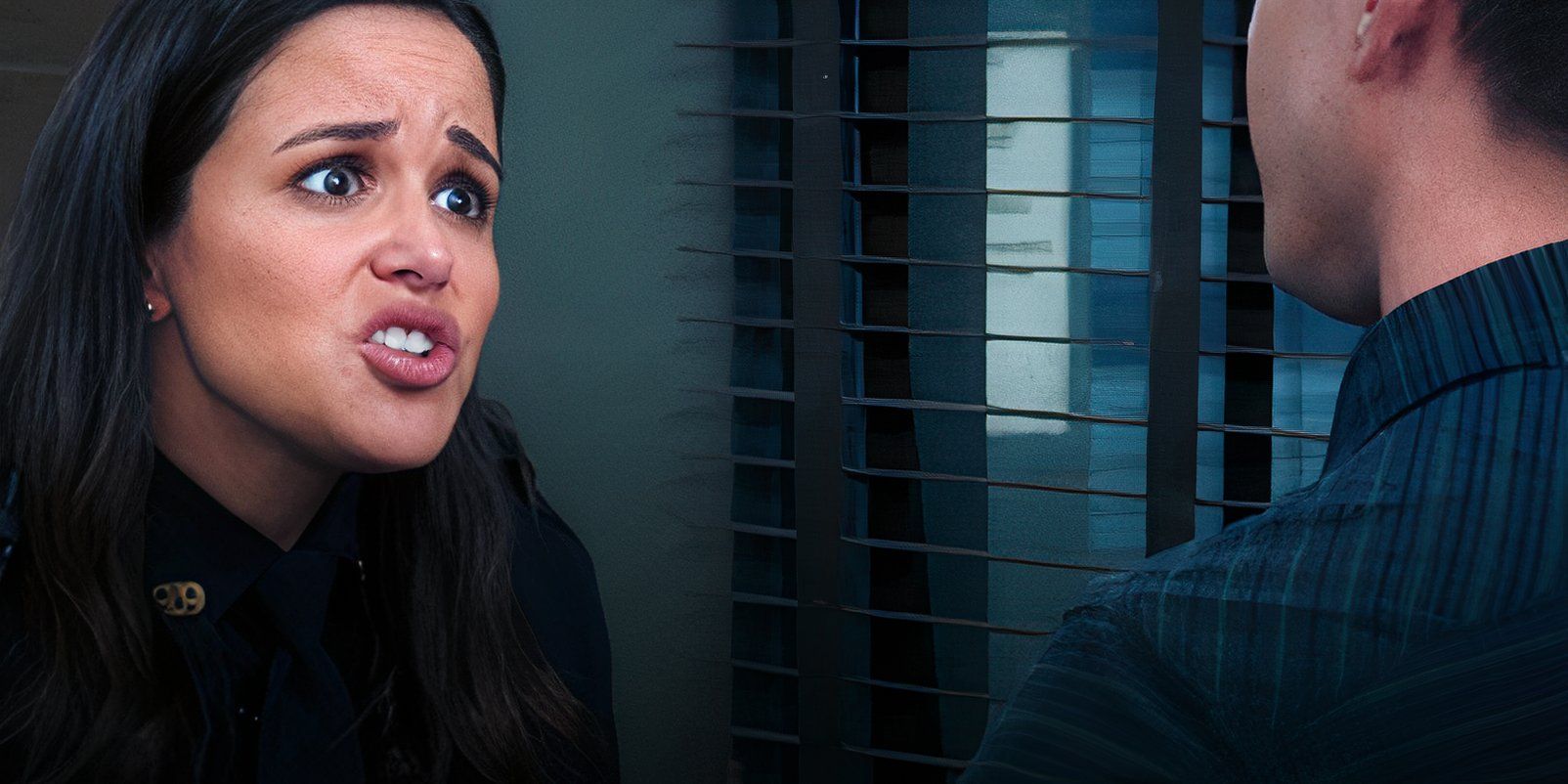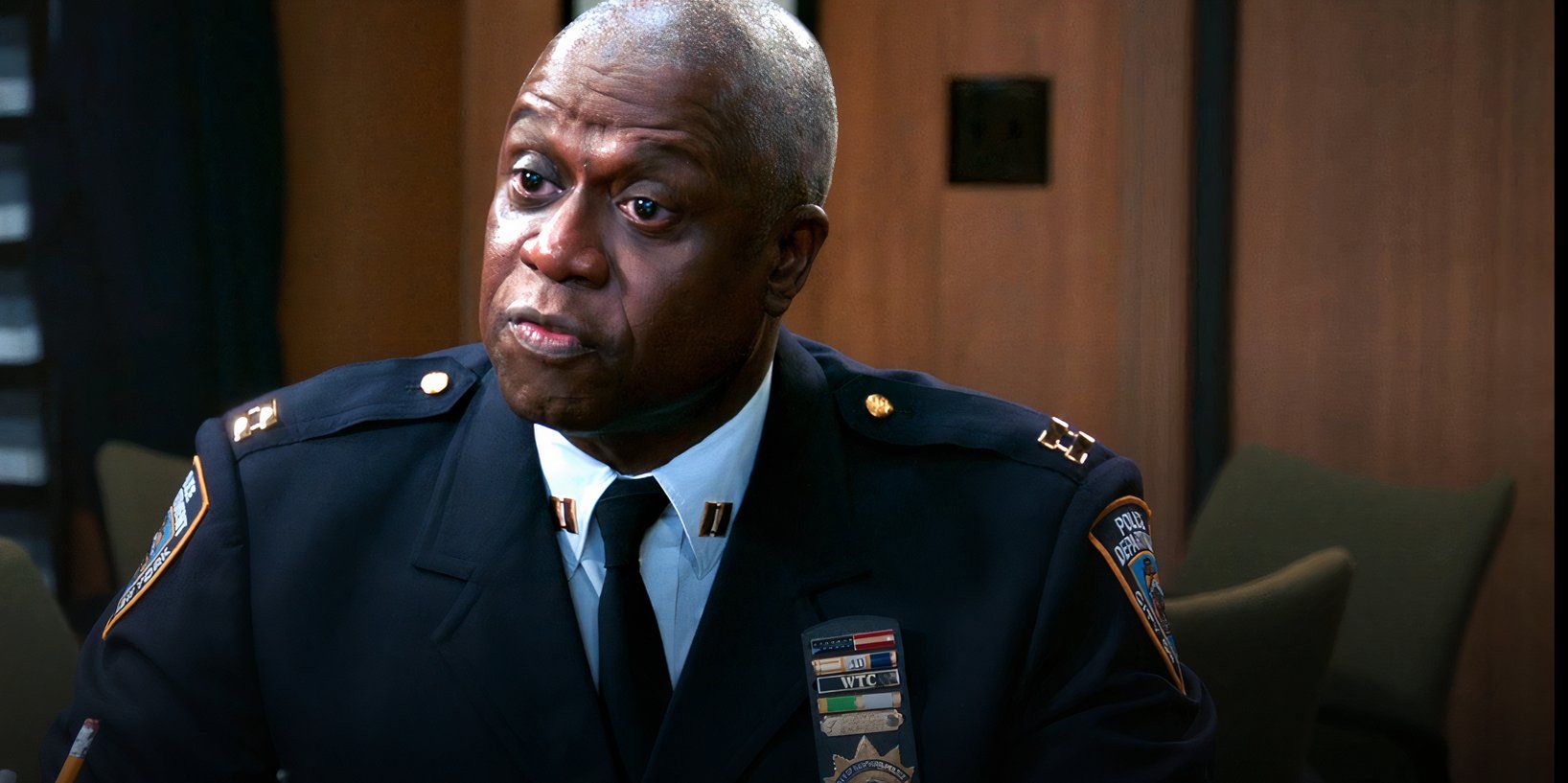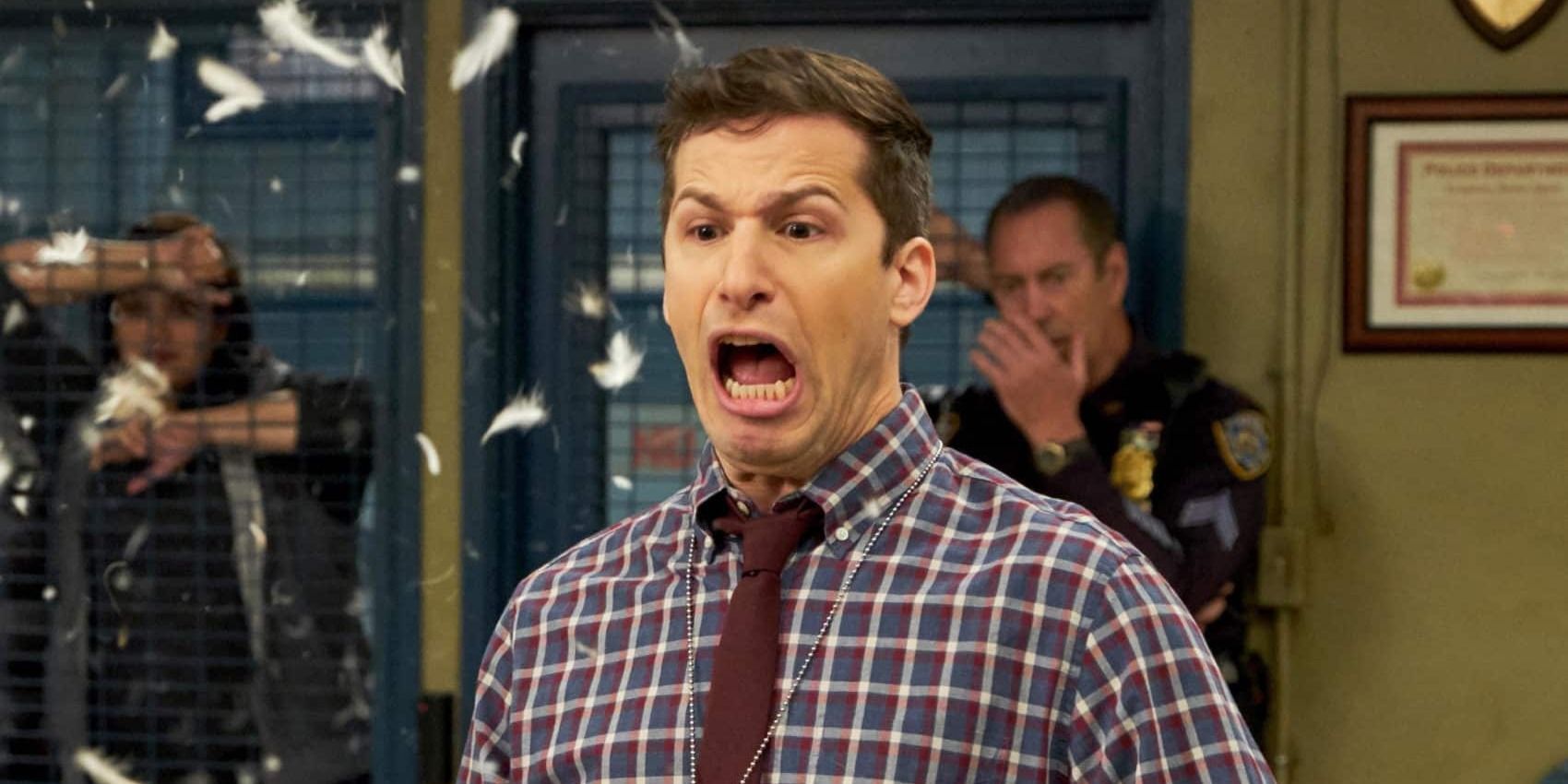
Brooklyn Nine-Nine is remembered for its funny dialogue and over-the-top jokes, but as with all Michael Schur shows, there was also a lot of emotion. On Brooklyn Nine-NineDuring the team's eight seasons, the team became a found family, so it was deeply emotional when team members faced aggravated or dangerous situations. As the show gained popularity midway through its run, the sitcom took time to address real-world issues like racial profiling and sexual harassment in the workplace.
Weaving heavy topics while remaining true to its comedic core is a testament to the writers and cast of Brooklyn Nine-Nine. Jake Peralta (Andy Samberg) led the cast of Brooklyn Nine-Nine and its arc mimics the series' maturity, especially in later seasons when the series explored the detectives' personal lives. Later seasons also reflected a shift in cultural perspectives toward police work, leaning more toward longer arcs about systematic corruption.
Jake realizes his hero's prejudices
Season 1, Episode 8, “Old School”
In the first season, Jake is a passionate, albeit immature, detective. He's friendly with everyone on the team, even if he thinks Captain Holt (Andre Braugher) is a bit annoying. Jake is eager to impress his favorite crime writer, Jimmy Brogan (Stacy Keach), when Brogan visits the squad. However, when he realizes that Brogan wants to write a hit article about Holt using quotes he took from Jake when Jake was drunk, Jake asks him to take down the story, wanting to defend his captain - even before Brogan uses a homophobic slur against Holt. .
This is an important episode Brooklyn Nine-Nine because it shows Jake's depth. He loves being a cop and playing the hero, but by punching Brogan he shows that he cares more about protecting people than getting his 15 minutes of fame. Jake needed to have his eyes opened to the bigotry that permeated the previous generation of police officers he adored, who would have accepted Jake but not his colleagues. Jake's friendliness isn't performative; he will do the right thing even at his own expense.
Terry is a victim of racial discrimination
Season 4, Episode 16, “Moo Moo”
In four seasons, Brooklyn Nine-NineThe iconic cold opens were famous, and the show built enough goodwill to venture outside of its pure sitcom origins to tackle real-world policing issues. Sergeant Terry Jeffords (Terry Crews) is a victim of racial discrimination in his own neighborhood, which shakes the entire squad. Terry is a dedicated police officer, father, and yogurt connoisseur, but when he is pulled over, he is reduced to nothing more than a black man, highlighting the dehumanizing experience of profiling. Holt's squad would never racially profile, but the entire NYPD isn't that progressive.
Brooklyn Nine-Nine was in a unique position to have two black men in positions of authority to discuss how to handle the incident. Holt advises caution while Terry wants action, which makes sense given the 80s environment when Holt was rising through the ranks. The episode ends on an ambiguous note, with Terry filing a complaint but being passed over for a liaison position, which seems appropriate for an episode covering such a complex and ongoing topic. No one should have to choose between dignity and career.
Rosa comes out as bisexual
Season 5, Episode 10, “Game Night”
Brooklyn Nine-Nine dealt with the delicate issue of Rosa Diaz (Stephanie Beatriz) coming out as bisexual in a way that felt authentic and deeply emotional. Seeing a character as strong as Rosa explicitly use the term bisexual is wonderful for representation, but the episode didn't shy away from the reality of rejection. It was heartwarming to see the team support Rosa immediately, but it would be so simple if Rosa's family also embraced her sexuality.
Rosa's traditional Hispanic parents immediately dismiss the concept of bisexuality, and because Rosa is a deeply private character, seeing her not end the episode in the place she wants is all the more devastating. Brooklyn Nine-Nine skillfully portrayed the complexities of coming out and the joy and sadness that can follow. This episode highlights the importance of finding family, with Holt telling Rosa that every time someone becomes their most authentic self, "The world becomes a better and more interesting place.”
Jake and Holt have an all-night interrogation
Season 5, Episode 14, “The Box”
“A Caixa” breaks with Brooklyn Nine-Nineensemble format to deliver a tense bottle episode. The entire episode takes place in one night, as Jake and Holt try to break down a presumptuous suspect, Dr. Philip Davidson (Sterling K. Brown), with a multitude of interrogation tricks. In one of Holt's best episodes of Brooklyn Nine-NineBraugher gets to flex his dramatic muscles, reminiscent of his days in Homicide: life on the streetswhich had a similar bottle episode, “Three Men and Adena.”
Braugher, Samberg and Brown's performances really shine. Holt's dry humor perfectly complements Jake's silliness. Their interaction becomes meta, with Jake not knowing if he's playing the game.”dumb cop"or whether Holt really thinks of him that way. It is Jake's desperation for Holt's approval that leads him to secure Davidson's confession in the end. The break with Brooklyn Nine-NineThe usual format of Highlights the intensity and drama of "The Box."
Rosa is involved in an active shooter situation
Season 5, Episode 20, “Show Me Going”
Many of the best Brooklyn Nine-Nine episodes have taken on their unique position as a police procedural, but 'Show Me Going' delved into the more dramatic moments that come with working in law enforcement. Rosa is involved in an active shooter situation in “Show Me Going,” but interestingly, the episode is not told from Rosa's perspective, but rather from the squad remotely monitoring the situation from the security of the police station. It's a unique perspective to follow the events of a shooting committed by uninvolved police officers.
Jake wants to play the hero and step in, but Holt points out that there are less bold ways to make a difference. “Show Me Going” is about living with fear and uncertainty. Jake feels helpless until he decides to support the team that's there instead of the one person he can't help. In this case, a pizza was a better tool than a gun, as the squad needed to connect to deal with their anxiety over Rosa.
Amy and Jake investigate a case of workplace sexual harassment
Season 6, Episode 8, “He Said, She Said”
When Jake works on a workplace sexual assault case with his wife, Amy Santiago (Melissa Fumero), it shows how, even as an ally, Jake has a lot to learn about the female experience. Brooklyn Nine-Nine addresses the complexities of this type of case, with Amy and Rosa having differing opinions on what is best for the victim. Amy is idealistic about inspiring women to speak out, while Rosa takes a pragmatic approach and wants the victim to protect herself by accepting hush money.
Brooklyn Nine-Nine carefully navigates the nuances of such a systemic issue. Amy and Rosa prove themselves right in their own way when the victim wins the case but is forced to leave her job, while her courage inspires a co-worker to come forward with a new allegation. Santiago takes the cases especially personally because she herself has experienced harassment in the workplace, giving the story even more emotional weight. The bittersweet ending is appropriate for an ongoing issue.
Jake and Amy argue about having kids
Season 6, Episode 12, “Casecation”
There are many great Brooklyn Nine-Nine episodes about Jake and Amy's relationship, but "Casecation" is an interesting misstep for the couple. Amy wants to have children so much that she suggests that she would have to “start over” if Jake didn't change his mind. It seems unusual for a type-A personality like Amy not to have discussed this before, but her insistence on a Lincoln-Douglas-style debate isn't the right approach to a nuanced emotional conversation.
Jake allows himself to be vulnerable, admitting he's scared of making a mistake he can't fix, referencing his well-known issues with his father. Jake and Amy are usually so in sync as a couple that even during one episode, thinking they've encountered an obstacle they couldn't overcome together is worrying. Jake finally conquers his fear of being a father when he diffuses a literal bombshell situation, but he must also know that he can do anything with Amy by his side.
The squad races to solve a case with a literal clockwork
Season 6, Episode 14, “Ticking Clocks”
Brooklyn Nine-Nine It creates a literal race against the clock when the squad has exactly 19 minutes to stop a hacker from obtaining sensitive information. Events unfold in real time, so every moment is crucial, resembling the action movies that Jake loves so much. With the lives of secret agents at stake, the episode has far-reaching ramifications beyond the squad.
This episode demonstrates how skilled the detectives really are, as they discover that the IT man who was “helping” them was actually the hacker. Holt is held at gunpoint for a breathless moment, but Brooklyn Nine-Nine is brilliant at infusing humor into intense moments, so when a burnt lasagna sets off the fire alarm, the distraction allows the squad to intervene and take down the shooter. This innovative episode fully capitalizes on the show's setting and delivers suspense and comedy.
Jake and Amy struggle with fertility
Season 7, Episode 6, “Trying”
Brooklyn Nine-NineThe last few seasons have explored modern relationship issues, and “Trying” is an honest portrayal of a rarely discussed relationship and health challenge: fertility struggles. Watching Amy and Jake go through stress, frustration, and hopelessness over the months is something many couples can relate to. Amy's structured, Type-A approach proves no more effective than Jake's laid-back style, leading Amy to question whether they should be parents.
Seeing a character so determined in despair is humanizing and powerful. Jake ends the episode with hope, saying they can explore other options like adoption or a break, but as long as he's with Amy, he'll have his family. Although Jake and Amy end up getting pregnant in subsequent episodes, shedding light on their months of efforts is still deeply meaningful.
Holt and Amy deal with an anti-cop incident
Season 8, Episode 3, “Blue Flu”
Brooklyn Nine-Nine'Season 8 shifted tone to address the reality of policing in a post-2020 world, grappling with the death of George Floyd and the resulting calls for police reform. “Blue Flu” pits the detectives against the plainclothes cops when they start calling in sick in protest of anti-police sentiment. This episode shows the tension between the external call for reform and resistance within the force.
While the main team in Brooklyn Nine-Nine are all ideals about what police officers should be, this episode and season addresses that not all police officers are. “Blue Flu” is a critique of a system that seems resistant to accountability. Brooklyn Nine-Nine had to infuse more political awareness into the series' DNA in its final season, leading to some very powerful episodes.

